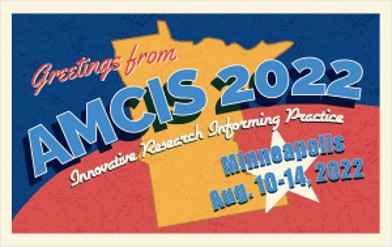Digital government explores the technology enabled transformation of the public sector. Information Communication Technology (ICT) has been invading public administration and is changing the ways governments operate. Initially, digital government was focused on alternative service delivery mechanism, but nowadays it is now considered as a key enabler of public sector transformation for improving governance, including transparency and accountability and citizen participation in democratic processes and policy making. Digital government changes the relationships between the government and the public and covers topics such as multi-channel service delivery, creating transparency, evidence-based policy-making, transformational government, adoption and diffusion of technology in government and open government. Agencies across the globe consistently identify innovative ways to use emerging tools, trends and technologies such as big data, open data, blockchain, and the Internet of Things to improve government services. Many governments have embraced these efforts, but struggle with implementation and adopting ICTs as part of the service delivery and policy-making processes. Within the information systems field digital government has its own niche in terms of practical and theoretical relevance.
Track Chairs:
Lemuria Carter, UNSW Business School, lemuria.carter@unsw.edu.au
Vishanth Weerakkody, University of Bradford, v.weerakkody@bradford.ac.uk
Yogesh K. Dwivedi, Swansea University, y.k.dwivedi@swansea.ac.uk
Schedule
| 2022 |
| Wednesday, August 10th |
|
12:00 AM
|
A Proposed Framework for the Governance of Blockchain Technology
Justin Zhang, University of North Florida
Wu He, Old Dominion University
Sachin Shetty, Old dominion University
Yuming He, Old Dominion University
Xin Tian, Kennesaw State University
12:00 AM
|
| 12:00 AM |
Defining Seniors’ Value-based Objectives for ICT-supported Governmental Elderly Care Services: Preliminary Lessons from Poland and Sweden
Ella Kolkowska, Informatics
Ewa Soja, Cracow Univeristy of Economics
Piotr Soja, Cracow University of Economics
12:00 AM
|
| 12:00 AM |
Digital Transformation in Europe: An Analysis of the Digital Divide in e-Commerce and e-Government
Wendy Currie, Audencia Business School
jonathan seddon, Audencia Business School
12:00 AM
|
| 12:00 AM |
Open Data Explorer: An End-to-end Tool for Data Storytelling using Open Data
Abiola Paterne Chokki, University of Namur
Benoit Frenay, University of Namur
Benoît Vanderose, University of Namur
12:00 AM
|
| 12:00 AM |
Social Media Government Surveillance: Government Attributes and Users Privacy
Mohamed Hussein ELDOH, Grenoble Ecole de Management
12:00 AM
|
| 12:00 AM |
The Impact of Government Surveillance News on Social Media Users Behavior
Mohamed Hussein ELDOH, Grenoble Ecole de Management
12:00 AM
|
| 12:00 AM |
Turning Buzzword into Public Service: A Case Study of European Blockchain Projects
Livia Norstrom, University of Gothenburg
Juho Lindman, University of Gothenburg
Mikael Lindquist, Applied Information Technology
Jens Karlsson, University of Gothenburg
Niklas Landsten, University of Gothenburg
12:00 AM
|


